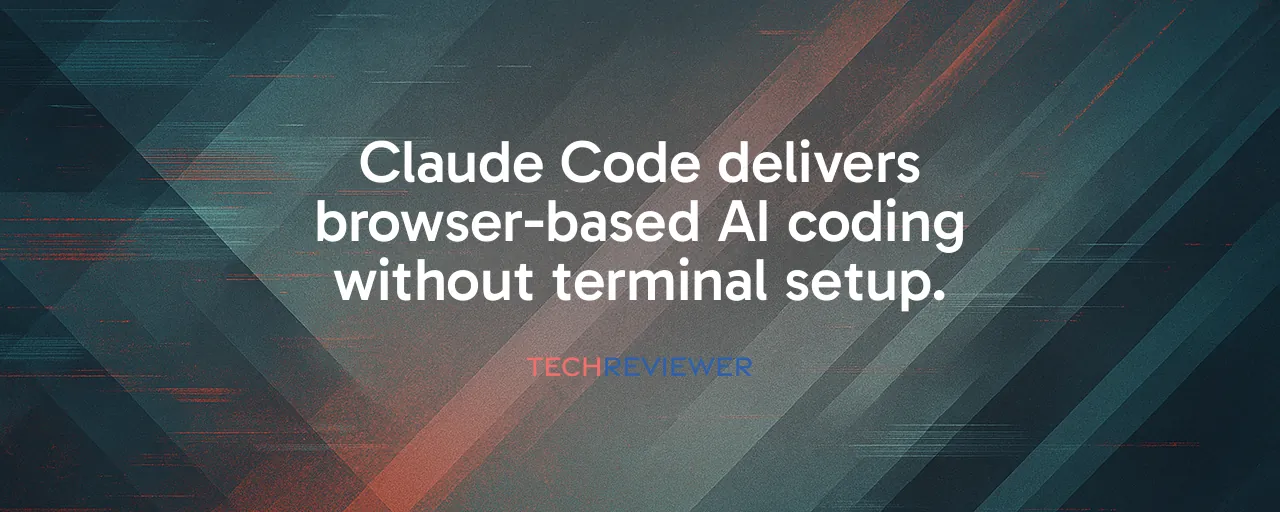A New Way to Code
Anthropic's Claude Code hit the web on October 20, 2025, letting developers ditch the terminal for a browser-based experience. This shift puts powerful AI coding agents at your fingertips, whether you're at a desk or on the go with the Claude iOS app. No more wrestling with command-line setups. Now anyone with a Pro or Max subscription can spin up coding sessions, connect GitHub repos, and delegate tasks with simple prompts. The web version's clean interface tracks progress in real time, making it easier to steer AI agents as they tackle complex projects.
This move reflects a broader trend in software development. Tools like Claude Code are evolving from niche terminal utilities to versatile platforms that meet developers where they work. With a market for AI coding assistants expected to soar from five billion dollars in 2024 to forty-seven billion by 2034, Anthropic's timing couldn't be better. The web launch builds on Claude Code's viral success, which saw a tenfold user spike since May 2025, generating over five hundred million dollars in annualized revenue.
Why Developers Love It
Software engineers, from startup coders to enterprise teams, are raving about Claude Code's ability to streamline repetitive tasks. Writing unit tests, refactoring code, or drafting documentation can eat up hours. Claude Code handles these with ease, letting developers focus on the big picture. At Cisco, engineers are testing how it accelerates projects across their product lineup, from network infrastructure to cloud solutions. One team noted it slashed the time spent digging through codebases to pinpoint bugs, automating what used to be a tedious manual hunt.
Temporal, another early partner, leans on Claude Code to speed up feature development and debug sprawling codebases. Their engineers describe it as a force multiplier: while they plan high-level architecture, the AI churns through test cases and refactors code in the background. Surveys show eighty-four percent of developers now use or plan to use AI tools, with fifty-one percent relying on them daily. Claude Code's knack for understanding natural language prompts makes it a favorite. It turns vague ideas into working code across multiple files.
Facing the Competition
Anthropic isn't alone in this race. Microsoft's GitHub Copilot, Google's Gemini Code Assist, and Cursor's AI-first IDE are all vying for developer loyalty. Copilot, a pioneer in the space, benefits from tight integration with Microsoft's ecosystem, while Cursor's recent nine hundred million dollar funding round signals its ambition to dominate. Google's Gemini, updated with agent mode in July 2025, pushes similar autonomous features. Yet Claude Code holds its own, with its Claude Sonnet 4.5 model excelling on coding benchmarks and a sandbox setup that keeps sensitive code secure.
Still, challenges persist. Rate limits, introduced after a usage surge in July 2025, cap how much developers can do, whether on the terminal or web. Some find the web version, still in preview, lacks the polish of the command-line tool. Enterprises, like those at Cisco, also worry about security. While Anthropic's proxy service and isolated sandboxes help, vulnerabilities like CVE-2025-54795 highlight risks of command injection. Developers must weigh these trade-offs against productivity gains, which studies peg at twenty-six to fifty-five percent.
What's Next for Coding
Claude Code's web launch hints at a future where coding isn't tied to a specific tool or platform. By making AI agents accessible via browsers and mobile apps, Anthropic lowers barriers for non-traditional coders, like product managers prototyping ideas. This democratization could reshape who codes and how. Imagine a designer tweaking a webpage's backend without touching a terminal, or a small business owner optimizing their site, as one diesel truck repair company did in August 2025 with Claude Code's help.
But questions loom. Will reliance on AI erode core programming skills? Some developers worry about becoming too dependent, with sixty-five percent citing issues like AI hallucinations, code that looks right but fails under scrutiny. Legal uncertainties around AI-generated code ownership also linger, with the U.S. Copyright Office noting in January 2025 that such code may not be copyrightable. As Anthropic pushes to expand Claude Code's reach, balancing accessibility, security, and trust will define its place in a crowded market.
